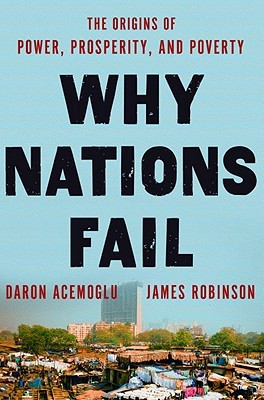
Why Nations Fail review part II: relevance to Timor-Leste & the Pacific
By Richard Curtain
29 June 2012
The persistence of extractive political and economic institutions is the starting point for Acemoglu and Robinson’s analysis of Why Nations Fail. I outlined their main arguments in Part I of this review.
Acemoglu and Robinson argue that ruling elites ensure that a country’s institutions act to serve their interests and direct economic benefits to them. The dead hand of the past shapes how the state acts now. For countries administered as colonies, the legacy of control by a small elite is all too evident. Their aim, as in PNG, was to promote the use of plantation crops supported by migrant labour and later smallholder cash crops. This was to generate an economic surplus to fund the law and order functions of the state and provide minimal services.
False prophets
According to Acemoglu and Robinson, analysts in agencies like the World Bank view the main obstacle to development as elite ignorance about appropriate policy options. Their focus is on correcting ‘micro-economic failures’ such as under-performing education and health care systems. However, they fail to see that elites often undermine reform efforts.
The policy makers and bureaucrats who are supposed to act on well-intentioned advice may be as much a part of the problem, and the many attempts to rectify their inefficiencies may backfire precisely because those in charge are not grappling with the institutional causes of poverty in the first place (p 449).
Acemoglu and Robinson are also critical of foreign aid: if sustained economic growth depends on inclusive institutions, giving aid to the regimes that are the very root of the problems mean foreign aid must be ineffective. However, Acemoglu and Robinson do not call for foreign aid to stop, claiming that even if only a small amount of the aid gets to the poorest, this is better than nothing.
Acemoglu and Robinson conclude by highlighting how hard it is for countries to develop inclusive institutions and do not offer any recipe for doing so.
What can an institutional perspective offer?
So what can an institutional perspective tell us about the Pacific? First, a weak state stems from its lack of legitimacy. In countries where few people pay tax, citizens have little incentive to demand better services. Governments only see the need to buy local favour through handouts to keep in power.
An institutional perspective also suggests that the size of the middle class is crucial. A recent research paper [pdf] from the World Bank finds evidence based on 110 countries to support this. An expanding middle class puts more pressure on governments to reform public policy and improve how institutions work. As the size of the middle class increases, social policy on health and education improves. Increased democratic participation also results in better controls for official corruption.
Acemoglu and Robinson show how self-serving elites do all they can to avoid disruptive change which could undermine their power. The persistent failure of governments in the Pacific and Timor-Leste to reform their education systems could be viewed this way. Their lack of practical support to help young people to migrate to high-income labour markets for work is another indicator of elite fear of disruptive change. Better education outcomes would enable young people to gain access to work in Australia, New Zealand and the USA. The result would be a new generation better educated than those in power and with access to resources to mount a political challenge.
One way for Australia to foster the disruptive change needed to produce inclusive institutions in countries in the region is to develop and promote a regional employment strategy. This strategy needs to set targets for a share of educated young people from each Pacific island country and Timor-Leste to find work of their choice in another country in the region. This requires, for example, that the Australia Pacific Technical College focus on producing graduates for employment outcomes in Australia and New Zealand rather than for limited domestic labour markets, as at present.
Real change to institutions such as education systems in the Pacific will only come when students and parents demand changes. This can only come about if young people have a job-related incentive to seek better education outcomes. More access to good jobs will enable the middle class to grow. This, in turn, will lift the demand for more open and effective systems of governance.
This blog is a part of a series on ‘Why Nations Fail.’ For other blogs in the series, see here.
Richard Curtain is a Melbourne-based, public policy consultant, who has spent 18 months in Timor-Leste in 2008 and 2009, working on projects funded by USAID, UNICEF and AusAID. His current work for two major multilateral agencies in the region relates to Timor-Leste and to pacific island countries.
About the author/s
Richard Curtain
Richard Curtain is a research associate, and recent former research fellow, with the Development Policy Centre. He is an expert on Pacific labour markets and migration.
